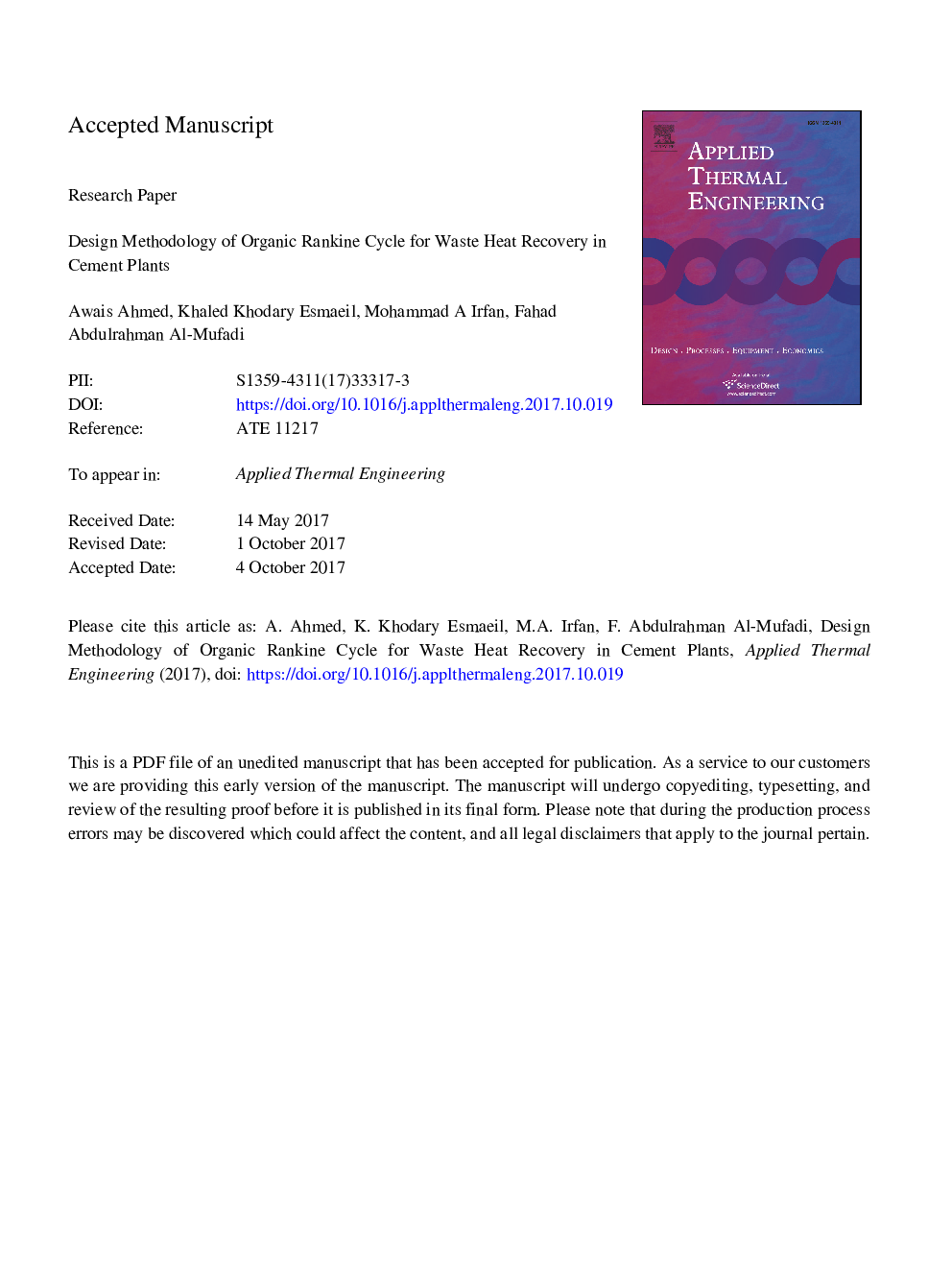| Article ID | Journal | Published Year | Pages | File Type |
|---|---|---|---|---|
| 4990349 | Applied Thermal Engineering | 2018 | 26 Pages |
Abstract
An organic Rankine cycle (ORC) is similar to a conventional steam cycle energy conversion system, but uses organic fluid, such as refrigerants and hydrocarbons, instead of water. A renewed research interest in ORC focuses on its progressive adoption as a premier technology for converting low and medium temperature i.e. 80 °C < T < 300 °C heat resources into power. Available heat resources are solar energy, geothermal energy, biomass products, surface seawater, and waste heat from various thermal processes. This study presents a design methodology for an ORC. The design is conducted based on the actual data from a local cement factory. The working fluid directly affects the efficiency of the cycle. The fluid choice is fundamental for a good cycle performance because the optimal thermos physical properties depend on the source temperature. This study illustrates the results of an organic Rankine cycle combined with a gas turbine to convert the gas turbine waste heat into electrical power. The R134a working fluid is chosen for the design. Consequently, approximately 1 MW power can be generated using an ORC. Exergy analysis is performed using actual data from the industry, showing that most of the exergy loss is in the working part of the turbine.
Related Topics
Physical Sciences and Engineering
Chemical Engineering
Fluid Flow and Transfer Processes
Authors
Awais Ahmed, Khaled Khodary Esmaeil, Mohammad A Irfan, Fahad Abdulrahman Al-Mufadi,
